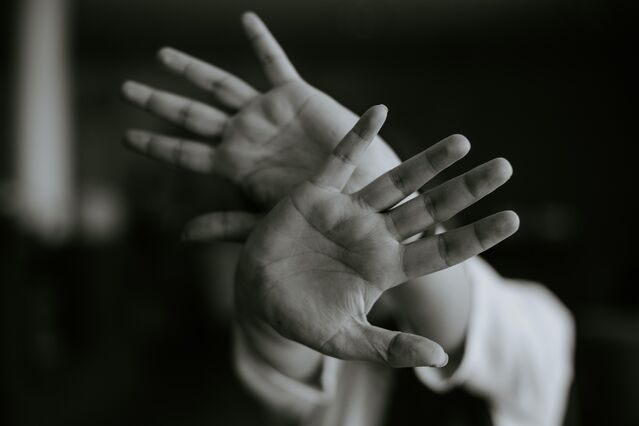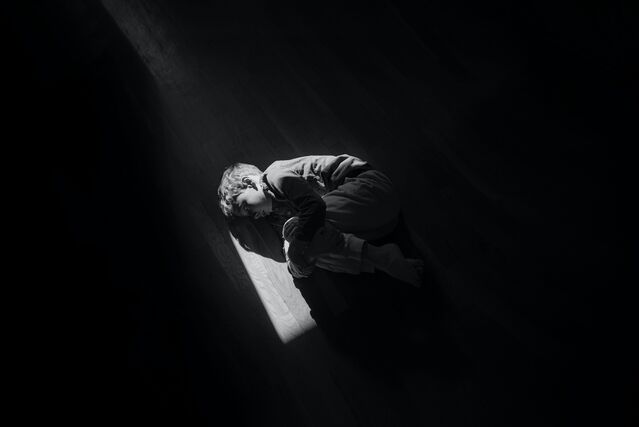Trauma
When Trauma Isn’t Worth the Post-Traumatic Growth
Mass shootings have no silver lining, only suffocating grief.
Posted May 25, 2022 Reviewed by Ekua Hagan
Key points
- Mass shootings have left many in the United States feeling powerless.
- While we can find meaning in tragedy, the loss will never be worth the cost.
- Expressing grief is an important step in moving forward after distress.
“You don't have to experience grief, but you can only avoid it by avoiding love. Love and grief are inextricably intertwined."—David Kessler

On May 24th, 2022, 19 children and 2 teachers lost their lives in a school shooting in Uvalde, Texas. Parents waited in anguish at a local civic center to learn if their child had survived. The agonizing screams of family members could be heard from the parking lot outside. This marks the 27th school shooting so far this year in the United States. Just 10 days before the Texas shooting, 10 Black people were killed in a racist rampage in a Buffalo, New York supermarket.
The victims of these shootings didn’t deserve this. Their friends and families didn’t deserve to lose their loved ones. These catastrophes have left me completely gutted.
What does one do amidst unspeakable horror? How will the parents of Xavier Javier Lopez carry on, knowing they will never take him to the summer swim lessons he was looking forward to? How can someone unaffected possibly understand what these families are going through? What can the average person conceivably offer that would bring the one thing families desperately want, their child back?
Often after a tragedy, we feel powerless, attempting to make sense of the loss and wreckage. But what meaning is there in senseless killing? Grief specialist David Kessler wrote that finding meaning is the sixth stage of grief. He noted:
There’s no meaning in a horrible death or in a pandemic or in a wedding being canceled or a job being lost. The meaning isn’t in the horrible event. The meaning is in us.…Your loss is not a test, a lesson, something to handle, a gift, or a blessing. Loss is simply what happens in life and the meaning is in us afterwards.
Following a traumatic event, we may grasp for any way we can help affected communities or work to prevent future heartbreaks if only to appease some vicarious form of survivor guilt that it wasn’t our child. Our teacher. Our neighbor.
I had envisioned the point of this post to bring hope and action. I wanted to reiterate how focusing on warm and compassionate feelings can help prevent empathic distress. How putting ourselves in another person’s shoes to feel what they feel can leave us feeling overwhelmed. Then we shut down and hide away from the suffering of others.
But what parent hasn’t wondered how they would have felt if their child happily bounced onto a school bus, never to return home? My own daughter is looking forward to summer swim lessons just like Xavier. What if it was her that was trapped in a classroom with a young man and his AR-15?
I want to practice compassion meditation. I want to wish love and health to the families of the victims, but my heart is heavy and my mantras hollow.

I thought of reminding readers that rather than mass shootings, the greater trouble with guns in the United States is the role they play in suicide. In 2020, more Americans died of gun-related deaths than in any other year on record, and suicide accounted for 54% of them. However, understanding that mass shootings are relatively rare does nothing to comfort the mourning students, faculty, and staff at Robb Elementary School.
I had wanted to discuss the impact of active-shooter drills on the mental health of children and teenagers, and tips on how to discuss the current events with them. I could have reiterated how important it is that parents help children feel that their world is safe and predictable, while also being open about their own feelings related to violence and uncertainty.
I planned to emphasize how trauma can bring personal growth, stronger relationships, and a clearer vision of what we want out of life. But the truth is, the pain isn’t always worth the silver lining.
I’ve always been struck by the words from Harold Kushner, whose son died of a rare aging disease. He wrote:
I am a more sensitive person, a more effective pastor, a more sympathetic counselor because of Aaron’s life and death than I would have been without it. And I would give up all those gains in a second if I could have my son back. If I could choose, I would forego all the spiritual growth and depth which has come my way because of our experience, and be what I was 15 years ago, an average rabbi, an indifferent counselor, helping some people and unable to help others, and the father of a bright, happy boy. But I cannot choose.
Maybe today isn’t about finding a way to reframe our distress, in hopes of “looking on the bright side.” Perhaps today isn’t about remembering what we’re grateful for or looking for the helpers, as Fred Roger’s mother told him after seeing scary things on the news.
Maybe today is our day to be engulfed in our collective grief. Our time to allow the heaviness in our chests to expand from head to toe. After all, unexpressed grief can take a severe toll on our quality of life, both physically and psychologically.
So today our feelings can simply be. And tomorrow, hand-in-hand, we can tenaciously construct a better future for our children.




